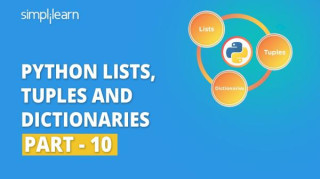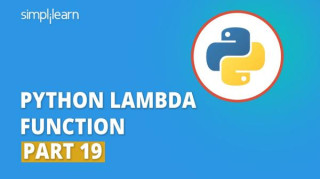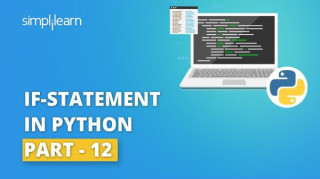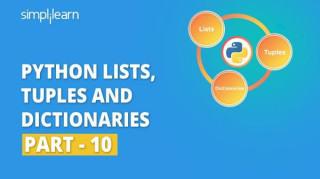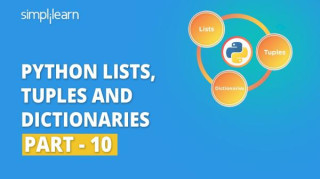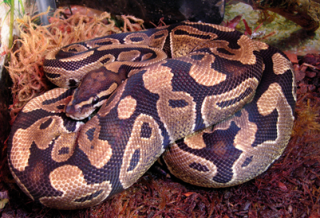Python Listsupdated at May 10, 2024 6,877 6,877 Lists are used to store multiple items in a single variable.Lists are one of 4 built-in data types in Python used to store collections of data, |
Challenge: One Code Problem Per Daycreated at Oct 03, 2025 366 366 There's a CS program course where we have to solve one coding problem every day.This course is really exciting.When solving the problems, |
Mastering Excel Data Manipulation with Pythonupdated at Apr 26, 2024 6,775 6,775 Python provides an awesme feature can access Excel spreadsheet file that based on pandas.You can use the pandas library in Python to read an Excel file and store its data into a Python array. Here's a basic example:Replace 'your_excel_file.xlsx' with the p... |
Python Tutorials for AP Computer Science Principles, updated at May 10, 2024 |
Machine Learning Types and Programming Languagesupdated at Nov 29, 2023 6,810 6,810 In the area of Machine Learning Technology, |
Code Chronicles - A Caffeine-Fueled Journey into Data Software Engineeringupdated at Sep 23, 2024 6,983 6,983 Interning in Data Software Engineering was like entering a realm where coding meets caffeine-fueled euphoria.The excitement bubbled within me like an over-caffeinated potion as I delved into the world of zeros and ones.“Excitement is like caffeine for the... |
Python Modulesupdated at May 09, 2024 6,797 6,797 What is a Module?.Consider a module to be the same as a code library.A file containing a set of functions you want to include in your application.Create a Module.To create a module just save the code you want in a file with the file extension .py:Use a Mod... |
Python Scopeupdated at May 09, 2024 6,776 6,776 A variable is only available from inside the region it is created.This is called scope.Local Scope.A variable created inside a function belongs to the local scope of that function, |
Python Polymorphismupdated at May 09, 2024 6,798 6,798 The word "polymorphism" means "many forms", |
Python Iteratorsupdated at May 09, 2024 6,770 6,770 An iterator is an object that contains a countable number of values.An iterator is an object that can be iterated upon, |
Python Inheritanceupdated at May 09, 2024 6,856 6,856 Inheritance allows us to define a class that inherits all the methods and properties from another class.Parent class is the class being inherited from, |
Python Classes/Objectsupdated at May 09, 2024 6,976 6,976 Python is object-oriented.In Python, |
Python Arraysupdated at May 09, 2024 6,776 6,776 Arrays are used to store multiple values in one single variable: Access the Elements of an Array.You refer to an array element by referring to the index number. .The Length of an Array.Use the len() method to return the length of an array (the number of el... |
Python Lambdaupdated at May 09, 2024 6,817 6,817 A lambda function is a small anonymous function.A lambda function can take any number of arguments, |
Python Functionsupdated at May 09, 2024 6,793 6,793 A function is a block of code which only runs when it is called.You can pass data, |
Python While Loops/For Loopsupdated at May 09, 2024 6,951 6,951 The while Loop.With the while loop we can execute a set of statements as long as a condition is true.The while loop requires relevant variables to be ready, |
Python Conditions and If statementsupdated at May 09, 2024 6,813 6,813 Python supports the usual logical conditions from mathematics::Equals: a == b, |
Python Dictionariesupdated at May 09, 2024 6,777 6,777 Dictionaries are used to store data values in key:value pairs.A dictionary is a collection which is ordered*, |
Python Setsupdated at May 09, 2024 6,773 6,773 Sets are used to store multiple items in a single variable.Set is one of 4 built-in data types in Python used to store collections of data, |
Python Tuplesupdated at May 09, 2024 6,859 6,859 Tuples are used to store multiple items in a single variable.Tuple is one of 4 built-in data types in Python used to store collections of data, |
Python Comparison Operatorsupdated at May 10, 2024 6,855 6,855 OperatorDescriptionExample.==, |
Python Arithmetic Operatorscreated at Jun 14, 2023 6,786 6,786 OperatorDescriptionExample% ModulusDivides left hand operand by right hand operand and returns remainder20 % 10 = 0* MultiplicationMultiplies values on either side of the operator10 * 20 = 200** ExponentPerforms exponential (power) calculation on operators... |
Printing string n timescreated at Jun 14, 2023 6,782 6,782 In Python, |
String concatenation by join()created at Jun 14, 2023 6,867 6,867 Write the code for a Python function expand(x) that takes a list of strings, |
Python String Operationsupdated at May 10, 2024 6,920 6,920 You can return a range of characters by using the slice syntax.Specify the start index and the end index, |
Python Data Typesupdated at May 10, 2024 6,940 6,940 In programming, |
Python Variablesupdated at May 10, 2024 6,897 6,897 Variables are containers for storing data values.Creating Variables.Python has no command for declaring a variable.A variable is created the moment you first assign a value to it.Variables do not need to be declared with any particular type, |
Python Commentsupdated at May 10, 2024 7,026 7,026 Comments can be used to explain Python code.Comments can be used to make the code more readable.Comments can be used to prevent execution when testing code.Creating a Comment.Comments starts with a #, |
Python Syntaxupdated at May 10, 2024 6,953 6,953 Execute Python Syntax.As we learned in the previous page, |
Python Getting Startedupdated at May 10, 2024 6,941 6,941 Many PCs and Macs will have python already installed.To check if you have python installed on a Windows PC, |
Python Introductioncreated at Jun 12, 2023 6,780 6,780 Python is a popular programming language. It was created by Guido van Rossum, |
What is Python?created at Jun 12, 2023 6,871 6,871 Python is a genus of constricting snakes in the Pythonidae family native to the tropics and subtropics of the Eastern Hemisphere.In terms of programming language, |
